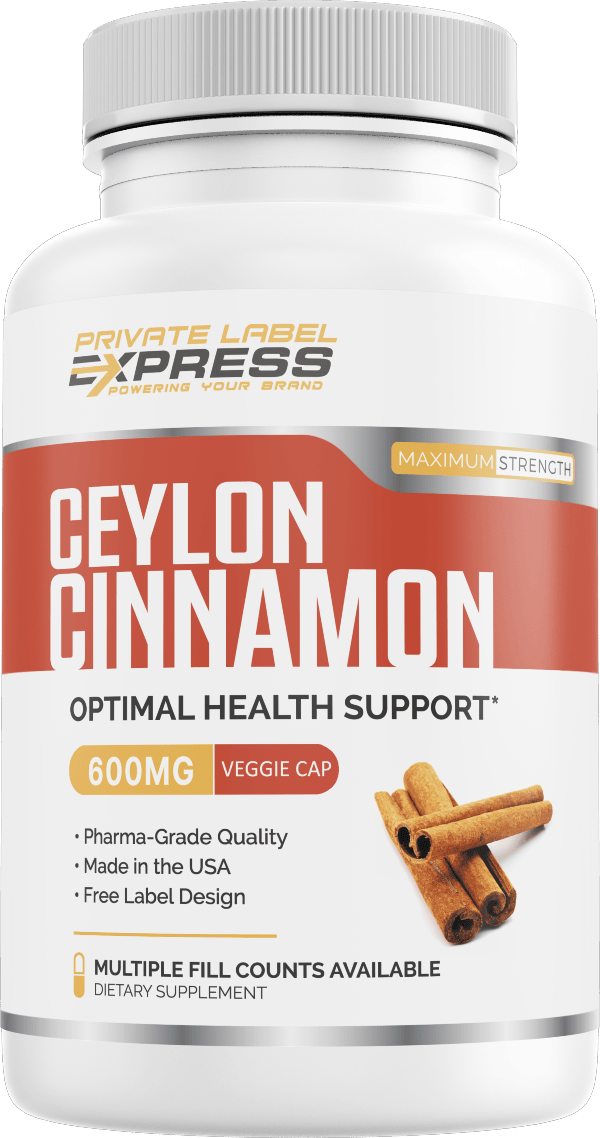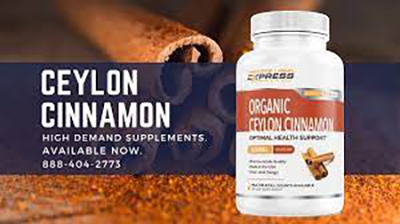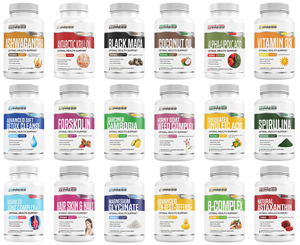
 Thinking About Selling Private Label Ceylon Cinnamon Supplements?
Thinking About Selling Private Label Ceylon Cinnamon Supplements?When it’s time to introduce a new supplement product to your brand line up, experienced sellers understand the importance of doing proper market research before making the financial investment. Many dread choosing the “wrong product” to move forward with, making this part of the qualification process key to your continued success.
 A Couple Of Factors To Consider
A Couple Of Factors To ConsiderWhen considering your next product, the first key point to remember is that different supplements represent different potential opportunities.
For example, some nutritional supplements might have limited competition. Establishing your brand presence and gaining sales momentum may be easier in the beginning, but the potential sales upside may be limited as a result.
On the other hand, another supplement option may be massively popular worldwide, and the progress may be gradual, but the sales upside would be higher. Depending on your product launch strategy and chosen marketplace, these supplement options may be well worth the extra time and effort.
A third product opportunity may be what is considered an “industry staple” – they have displayed tried and true market resiliency over the years, making them a less volatile and more stable type of product to choose. Though it may not serve as the centerpiece of your product lineup, it could potentially be the perfect complementary option.
Another key factor to consider is which direction the product’s popularity seems to be trending in – does your research indicate an upward or downward trend?
Doing proper research is a vital step, but it is often overlooked by first-time private label business owners. Your brand could have a great message, ethically-sourced raw materials, and effective supplements, but without the demand, it doesn’t stand much of a chance at gaining traction. No matter how good the marketing may be, if consumers don’t see a need for it, they won’t buy it. And convincing a consumer that they need a product is a lot harder than simply already giving them what they already want.
Next, let’s examine the benefits and the business behind selling private label Ceylon cinnamon supplements so that you’re able to make an educated decision on whether they will work well with your brand’s product lineup.
 A Closer Look At Private Label Ceylon Cinnamon Market Indicators…
A Closer Look At Private Label Ceylon Cinnamon Market Indicators…Since each supplement will have its own market advantages and challenges, it’s crucial to take the time to understand a few market indicators in more detail to determine what kind of opportunity Private label Ceylon cinnamon supplements represent for you and your brand.
One crucial market indicator is search engine popularity. Data from Google, Bing, and other search engines can provide a picture of the supplement’s life in the spotlight.
When searching for the term “Ceylon cinnamon”, our analysis uncovered that although the ingredient is not among the “top tier” of supplements in terms of overall volume, it still has a competitive advantage with specific target audiences. With a strong marketing strategy, opportunities can be found among niche communities that prioritize the stabilization of body weight and insulin levels.
These communities have generated tens of thousands of U.S. searches every month while searching for related phrases that couple “Ceylon cinnamon” together with “weight loss” or “insulin levels”. Luckily for brand owners looking to offer this product, when compared to many other supplements aimed at similar functions, bidding on these and other Ceylon cinnamon-related terms, is relatively inexpensive. SEO keyword difficulty analysis also shows that it is comparatively easier to rank higher than current competitors on the first page of search results for this supplement than it is for others.
Another decisive market indicator is sales performance. In gathering information from big e-commerce platforms like Amazon, our research uncovered that the top ten Ceylon cinnamon sellers move thousands of units every month. Despite the product’s relatively modest search engine popularity, sale numbers from sellers indicate a solid and consistent market. Many of these mavericks have been able to reach the top despite having less than 200 reviews. Therefore, there is an opportunity for new brands to gain ranking if they employ the right business approach. It also means that the product can be an interesting complementary offering for a brand already targeting these niche communities.
Given recent information from trusted market researchers, the market for cinnamon is expected to stay solid and consistently grow by a 13.8% CARG, reaching 1.9 billion in 2025. Research also shows that based on product type, Ceylon has dominated the market since 2018, accounting for more than 35% of the cinnamon revenue. A trend that is expected to retain its dominance at least until 2025.
Many consumers take cinnamon in hopes of supporting their weight loss goals. This is probably due to a number of studies that have connected the spice to this functionality. One study noted that the cinnamaldehyde found in cinnamon may help burn calories by activating thermogenesis in the body. However, studies have not conclusively proven that this directly leads to weight loss.
Ceylon cinnamon also appears to inhibit the buildup of tau in the brain, a protein that is one of the hallmarks of Alzheimer’s. Therefore the product has a segment of followers that take it for this reason as well. Although studies have found some supporting evidence to these claims, they have not been confirmed.
Others consume cinnamon because they seek help in reducing “bad” LDL cholesterol, while some use it in hopes of decreasing their blood pressure. Again, these claims have been studied but have not been deemed conclusive.
Finally, those who follow a healthy lifestyle consume cinnamon because it is known to be loaded with some of the most potent antioxidants. In fact, a study comparing 26 spices, including “superfoods” like garlic and oregano, found that cinnamon has the most antioxidant activity among all.
Consumers can access cinnamons with similar properties, but some like Saigon or Vietnamese cinnamon can be toxic if consumed in large quantities. This is due to the levels of coumarin found in them. However, Ceylon cinnamon has much lower levels of coumarin, thus making it a safer option.
For consumers seeking the antioxidant powers of cinnamon, it is imperative to note that consuming milk can inhibit the bioaccessibility of this product. This is because the main antioxidant in cinnamon is known as polyphenol, a molecule that prefers to attach itself to caseins rather than be absorbed by the body. Without the presence of milk in the system, polyphenol has a high bioaccessibility of 79%.
 Are Private Label Ceylon Cinnamon Supplements Right For Your Brand?
Are Private Label Ceylon Cinnamon Supplements Right For Your Brand?Private Label Express offers a wide selection of market-tested and proven stock solutions for you to choose from allowing you to find the perfect product to suit your brand and set you apart from the competition. Your purchase includes complimentary label design, label printing, and label application in your name, ensuring the product is fully branded and ready to go when you receive it.
We offer many other private label supplements besides Ceylon cinnamon, contact one of our experienced team members today for an in-depth, customized consultation.
 Partner With Private Label Express Today!
Partner With Private Label Express Today!When it comes to competing with brands around the world, we understand what it takes to help power you to the next level of your success. Give your brand a competitive edge and make our team a part of yours.
World-class production capacity, industry-leading turnaround times, high-demand products, and unparalleled support. Power YOUR Brand with Private Label Express.
